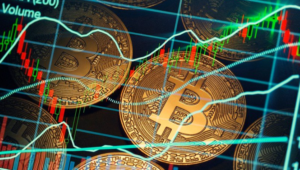$FTSE $EUR/USD $BTC
#UKEconomy #SlowGrowth #EconomicReform #EU #Investing #FinanceNews #Crypto #Markets #Europe #GDP #PolicyReform #Trade
The UK and its European neighbours are navigating an era marked by sluggish economic growth, a trend that has raised concerns across financial markets, policymaker circles, and businesses alike. Central to this issue is the prolonged impact of factors such as Brexit, the pandemic’s fallout, shifting global trade alliances, and energy supply disruptions. These nations, integral players in the global economy, face mounting pressure to implement meaningful reforms to reignite growth. For investors, the persistent slow growth raises questions about equity market performance, currency strength, and long-term asset allocation in both the UK and Europe. Analysts are closely observing economic data, especially key indicators such as GDP growth rates, productivity trends, and trade balances, to assess whether these economies can chart a stronger course forward.
Amid these challenges, opportunities are emerging, albeit with the caveat that coordinated and ambitious economic reform could be the essential spark. Focused policy shifts—such as measures to improve productivity, foster innovation, and reduce regulatory bottlenecks—may yield long-term benefits. For instance, sectors like green energy, digital infrastructure, and advanced manufacturing stand to gain from strategic investments and subsidies. The UK’s headline FTSE 100 index has shown resilience in the face of external pressures, suggesting that investor appetite for defensive stocks with strong dividend yields persists. Likewise, the eurozone, represented by the euro-dollar ($EUR/USD) currency pair, will need to demonstrate its economic competitiveness amid rising interest rates and uneven growth across member states. Strategic reforms could entice global investors back into the region, which has seen outflows in recent quarters.
Cryptocurrencies like Bitcoin ($BTC) may also see unique benefits amid Europe’s economic challenges. As interest builds around decentralized finance (DeFi) and blockchain technology, some market participants view these platforms as a possible hedge against weaknesses in traditional financial systems. However, critics remain cautious, noting that regulatory uncertainty and tightening monetary policies could weigh on digital asset markets. Market watchers are also evaluating whether prolonged European underperformance could trigger a broader risk-off sentiment, leading to more pronounced volatility in crypto and equity markets.
Ultimately, the path forward depends on whether the UK and Europe can “grasp the nettle” of reform in a decisive and coordinated manner. While governments weigh difficult trade-offs between fiscal discipline and growth-boosting public investments, businesses will likely take the lead in driving technological adoption and supply chain transformation. The stakes are high: failure to act decisively could entrench an economic malaise that dampens global markets, whereas proactive measures might usher in an era of revitalized productivity. Investors, policymakers, and institutions alike will continue to monitor developments closely, as the region embarks on what could be a pivotal moment of transformation in its economic narrative.










Comments are closed.